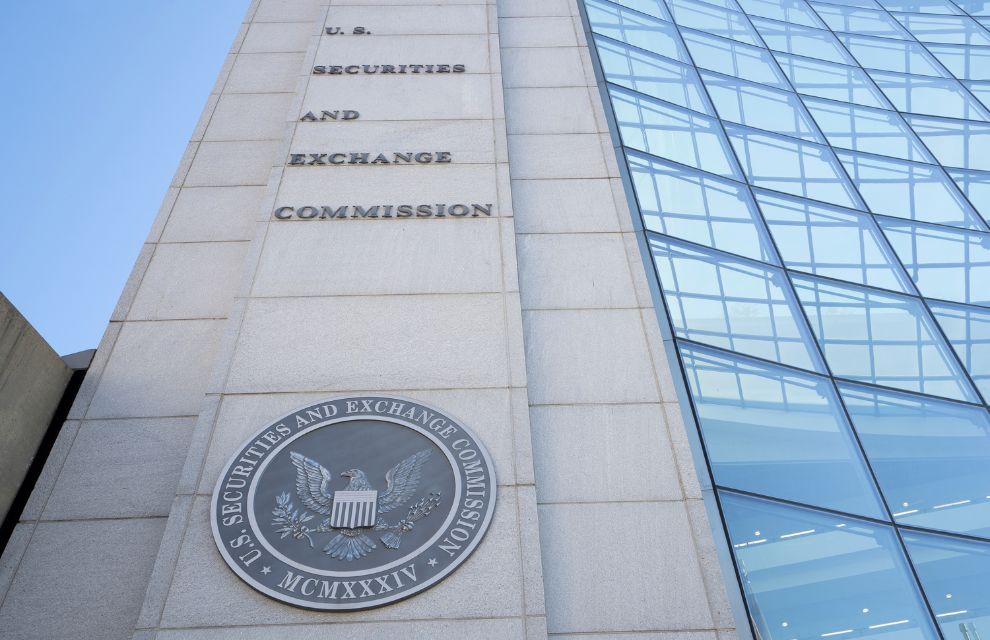SEC withdraws Dealer Rule appeal
20 February 2025 US
 Image: Tada_Images/stock.adobe.com
Image: Tada_Images/stock.adobe.com
The US Securities and Exchange Commission (SEC) has withdrawn its appeal of the decision by a district court in Texas vacating the Dealer Rule.
Jack Inglis, CEO of the Alternative Investment Management Association (AIMA), welcomes the news, following his letter to Mark Uyeda, acting chairman at SEC, urging a swift withdrawal of the appeal.
“While today’s decision significantly reduces uncertainty and the potential for market disruption, we urge the commission to review their existing enforcement practices with respect to the dealer definition so that they are consistent with the court’s ruling,” says Inglis.
Adopted in February, the Dealer Rule aimed to expand the definition of a ‘securities dealer’ and ‘government securities dealer’ under US law, addressing gaps and ambiguities in the regulatory framework.
The rule broadens the scope to include entities or individuals whose trading activities regularly have the effect of providing liquidity to the marketplace, regardless of whether they serve customers.
It introduced two qualitative tests to determine if someone is a dealer, based on liquidity provision and revenue from trading spreads.
Critics of the rule, including AIMA, along with the National Association of Private Fund Managers (NAPFM) and the Managed Funds Association (MFA), contend that the SEC was overreaching its authority by attempting to broaden the scope of entities subject to dealer regulations beyond what is permitted under the statutory definition of a dealer in the Securities Exchange Act of 1934.
The three trade associations challenged the rule in March, arguing it is “arbitrary and capricious”, and that it was adopted without adequate consideration of its impacts on efficiency, competition, and capital formation.
As a result, the US District Court for the Northern District of Texas decided to vacate the final rule entirely in November.
The SEC appealed the court’s decision on 17 January as one of the final actions taken by the prior administration.
Bryan Corbett, president and CEO of MFA, comments: “Withdrawing the appeal turns the page on the Gensler era at the SEC and benefits markets, investors, and the economy by decreasing business risk, the cost of capital, and systemic risk.”
Jack Inglis, CEO of the Alternative Investment Management Association (AIMA), welcomes the news, following his letter to Mark Uyeda, acting chairman at SEC, urging a swift withdrawal of the appeal.
“While today’s decision significantly reduces uncertainty and the potential for market disruption, we urge the commission to review their existing enforcement practices with respect to the dealer definition so that they are consistent with the court’s ruling,” says Inglis.
Adopted in February, the Dealer Rule aimed to expand the definition of a ‘securities dealer’ and ‘government securities dealer’ under US law, addressing gaps and ambiguities in the regulatory framework.
The rule broadens the scope to include entities or individuals whose trading activities regularly have the effect of providing liquidity to the marketplace, regardless of whether they serve customers.
It introduced two qualitative tests to determine if someone is a dealer, based on liquidity provision and revenue from trading spreads.
Critics of the rule, including AIMA, along with the National Association of Private Fund Managers (NAPFM) and the Managed Funds Association (MFA), contend that the SEC was overreaching its authority by attempting to broaden the scope of entities subject to dealer regulations beyond what is permitted under the statutory definition of a dealer in the Securities Exchange Act of 1934.
The three trade associations challenged the rule in March, arguing it is “arbitrary and capricious”, and that it was adopted without adequate consideration of its impacts on efficiency, competition, and capital formation.
As a result, the US District Court for the Northern District of Texas decided to vacate the final rule entirely in November.
The SEC appealed the court’s decision on 17 January as one of the final actions taken by the prior administration.
Bryan Corbett, president and CEO of MFA, comments: “Withdrawing the appeal turns the page on the Gensler era at the SEC and benefits markets, investors, and the economy by decreasing business risk, the cost of capital, and systemic risk.”
NO FEE, NO RISK
100% ON RETURNS If you invest in only one securities finance news source this year, make sure it is your free subscription to Securities Finance Times
100% ON RETURNS If you invest in only one securities finance news source this year, make sure it is your free subscription to Securities Finance Times



